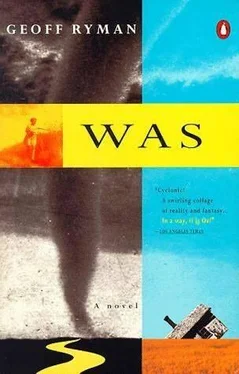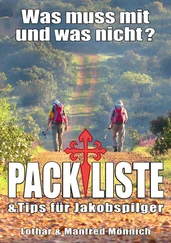There was a knock at the door. "Can I come back in?" Angel asked.
She unlocked the door and looked at him. "Do you want someone to sit up with you?"
Jonathan couldn't answer the question. He didn't know.
"I just thought maybe it would help you sleep if someone read to you."
Jonathan thought that sounded pleasant. "You don't have to."
"It's okay. I got to be on call, kinda, anyway."
"Thanks," said Jonathan.
She sat down primly on the chair by the desk. "What you want me to read?"
"I have some photocopies," he said, trying to think where they were. He had left the papers somewhere on the bed.
"I don't see any," said Angel, leaning forward on her knees.
"That's funny." Jonathan sat up, holding the sheet modestly in front of himself. He didn't want her to see his ribs. Dismay came. "They were just here!"
He went weepy. "They were just here!"
"Ssh ssh ssh," she said. "It's okay, I got them." She coaxed the papers out of a fold of the quilt, thrown on the floor. She tapped them neatly back into order on the desk. "Righty-ho," she said, lightly.
"I'm losing everything," said Jonathan, lying back down.
He told her where to start reading. The memoirs began again. "Pioneer Beauty."
It seemed to him that he was not being read to. It seemed to him that the author of the memoirs was speaking to him with her own flat, plain voice. He thought he heard the crackle of a fireplace.
" 'In those days,' " she read, " 'Manhattan was abolitionist, but St. George was pro-slavery. There were rival gangs, many of them from far afield. Once my father was traveling to Topeka to bear witness to the treatment of the Indians on the Council Grove reservation. He agreed to travel for part of the way with a friend who had an ox team. The friend assumed that my father would travel faster than himself, and so left early, the plan being that my father would catch up with him on the road.
" 'On the road, my father was stopped by a gang of men. Judging them to be from Missouri, he told them he was from near St. George. "Well," the ruffians replied. "It's a mighty good thing you are from St. George or the same thing would have happened to you as happened to that damned man from Manhattan." The gang let my father have his freedom. Further along the road to St. Mary, he found what he was dreading, the body of his friend. He had been murdered and his team stolen.' "
The author remembered orchards of cherries, crab apples and winter apples. She remembered the more uncertain crops of peaches, plums and pears. There were native plums as well, and wild grapes in tame arbors. The fruit had to be canned or dried. Jellies and pickles were made. Paper coated with white of egg would be laid over the contents. Pickles were put up in earthen jars or crocks with a large plate inverted over them and a scrubbed stone placed over each plate for weight.
Jonathan saw woodpiles. Cottonwood, cobs, chips for a quick fire. Blackjack for a steady burn. He smelled apple-scented carbon dioxide, exhaled from fruit in barrels.
Suddenly he was awake. Angel was at the door.
"Oh darn, you were asleep, I'm sorry."
"Stay," he croaked. He was scared. He felt very odd indeed.
"I can read you some more."
"I can't follow it," he said. "Just stay with me."
She sat down again. "So why don't you tell me why you came to Manhattan?"
He told her he was looking for Dorothy. Dorothy of Oz, she had really lived, she had lived near here, she knew Frank Baum.
"Really? Wow," Angel said lightly. "I mean, everybody knows Baum came here once. That's why they named some streets after the movie."
"I'm trying to find her house. I'm trying to find where she lived."
"Why? So you can get to Oz?" A smile.
Jonathan paused. "It's that dumb. Yes." Something seemed to swell in the air between them. "I haven't got that long," he said.
"Oh," she said. "I see."
"I'm dying," he said.
"Mmmm hmmm," she said, pressing her lips tightly inward.
"And," he said with a singsong sigh, "I don't know that I'm going to find her. But I do reckon that I might stay here."
"In Manhattan. How come?"
"I don't want to go back to L.A.," he said, and started to tell her about NPR, and a British pop group called It's Immaterial, and how he loved their single, "Driving Away from Home." He told her about Ira, his friend, how they had lived together for years, and then had a fight. Dimly he realized that she might guess what he was dying of, but he didn't care suddenly. He felt like a scarf tied to a fence post, blowing in a hot wind. His words were hot.
The scarf came untied.
"It's like Gilgamesh," he said. "She goes to find the Wizard, like Gilgamesh tries to find… find… this Noah character and… and… and the Wizard is like a king because he and the land are the same thing, Oz and Oz, they have the same name and when he leaves in a balloon it's like his big bald head, and the land dies, and… and… and Dorothy is… goes to the Netherworld to find life. She goes to the Land of the Dead."
He was raving. It felt good to rave. He finally found words. "She goes to the Land of the Dead to find Life. Isn't that dumb? Why can't we find it here?" It seemed to him a very reasonable question, asked in the spirit of inquiry.
"You're scaring me," said Angel.
Jonathan seemed to settle back. He touched his own forehead and it felt burning even to him. "Sorry," he murmured.
"Maybe if I read to you some more?"
Angel rattled through the pages. The plain Kansas voice spoke.
" 'My sister would never be held down. She was small and pretty, like something in a music box. People were always asking her to sing. I remember that if she liked something, she would try to give it away. She would wrap it up, sometimes even with her best hair ribbons and give it to me, or Father, or the neighborhood gals. And she'd wait and watch as we opened up her gift.
" 'The life of a farmer's wife would never have suited her. I know my father wanted her to be a schoolteacher. When she ran away to St. Louis, he was very unhappy. He need not have been. She became, I am informed, even more beautiful. How I wish now that I could have visited the refined places in which she performed, to see her success, to hear the fine gentlemen, the appreciative ladies, applaud.
" 'After the Angel of Death descended, an exhalation of my sister's perfume was sent to us, a sweet child, her daughter, Dorothy.' "
Jonathan went still on the bed, unable to move
" 'This little girl became a new source of happiness to us. I learned then what I know now, that childhood is the source of all happiness. We remember joy when reminded of our lost years.' "
"Where?" whispered Jonathan. "Where is she?"
"Oh," said Angel and stopped. "You think it's her?"
"What's her name? The name of the author?"
Angel turned the wad of papers over in her hand. No name on the front. There was handwriting at the end of the manuscript.
"All it says is that this was retyped, but that most of the papers were lost in the 1903 flood. But, here, at the back it says the author was E. A. Branscomb."
"That's her, that's her." Jonathan nodded. He looked at Angel. "I'm not making this up, am I?"
"Don't think so," she said and passed him the papers.
He flipped through them, scanning. "Do you remember her saying anything about where the farm was?"
"She mentions the Kaw." Angel shrugged.
"She's got to tell us where she lived!" he exclaimed.
Something stopped him dead on a page before he knew consciously what he had seen. He stopped dead, and seemed to see the word "School" and then read:
I felt as blessed as my little charge to have had Miss Ida Francis for a schoolteacher, and Sunflower School so close at hand.
"I got her!" whispered Jonathan.
Читать дальше












